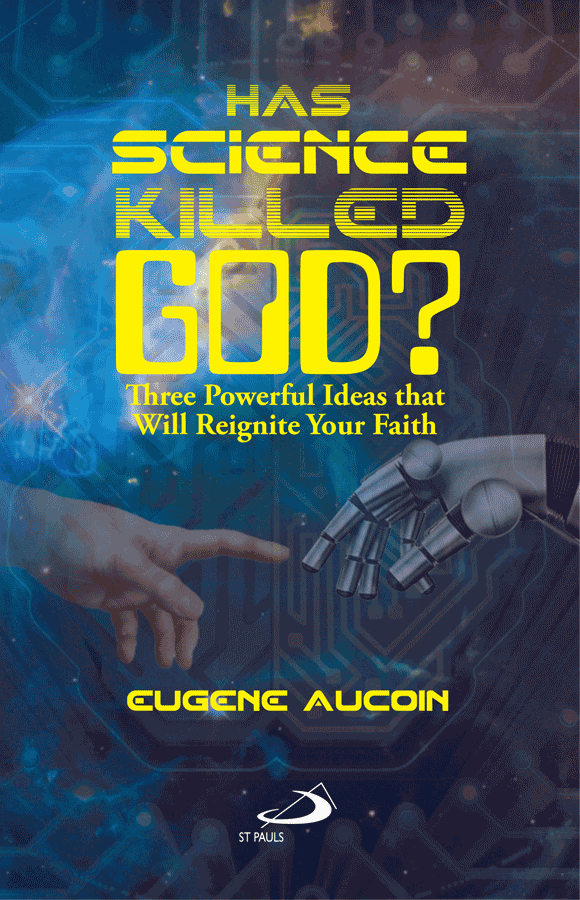The summit of Christ’s dialogue with the Samaritan woman (Jn 4:4–26) was the point at which she discovered that God is not behind the stars but within her. She realized she desired a spirit-to-Spirit communion through the inviolable freedom buried deep within her heart. It must have felt to her, in listening to Jesus this way, like a fountain of clear water (Jn 7:38) from an eternal source.
All this is so true and simple that to overly discuss it can only serve to complicate it. No one can enrich purity and simplicity with add-ons. That is why Jesus said God’s message was not revealed to the wise and the learned, but to “the little children.” They get it.
We overcomplicate things. God is best heard by the soul that stands before him totally barren, ignorant, empty and detached of all its senses, with eyes closed, in the absolute knowing that God is present.
In that great peace of God, we begin to realize what distance there is between our often complicated ignorance and his quiet wisdom. But we also sense his love for us as we are, even when we’re incapable of being the people we wish we were. There is only one love, it’s the love we feel for our loved ones, and the one God has for all his creatures. It’s the love we see in the heart of a child, simple and light, though God’s is to a degree we could never match in this lifetime. Maybe the reason we are mysteriously attracted to something as simple, yet so unnaturally profound as “love your enemies,” is because doing so is simply, well… divine.
Everything passes away. Everything passes away except God. If we can perceive this intuitively, if we can sense that nothing but God is stable, if we have a deep awareness that everything fades away, expires, dries out, and dissipates—everything, that is, except God, then we begin to sense the perfection and holiness of God.
This experience of God’s peace is unlike any other, and it is the surest support for our faith. Experience, as I have said earlier, and taught everywhere, is the best teacher. And this is experiential learning at its best because this unique form is provided by God. “Peace I leave with you; my peace I give to you. Not as the world gives do I give it to you. Do not let your hearts be troubled or afraid” (Jn 14:27).
Time with God is like a candlelight dinner during which he teaches us his own science, one that can only be understood with a tranquil heart. This is more than a mere self-centered search for well-being, or idleness. God will help us keep our minds attuned to the movement of his Spirit in the center of our being. This center is deeper than words, images, thoughts, and logic. It is inaccessible to sin or to anything other than the God of love.
The very desire to look for God means we have already found him. So, finding him does not require concentration exercises or attempts to elevate our spirits to higher ground. In drawing us to him, God comes down to our level, asking us only to allow him to do his work within us. In giving himself totally over to us, for all that this implies, God asks of us only a receptive, attentive, and welcoming attitude.
To acquire enough faith to desire spending time with God, we need at least just enough of it to ask for more of it, and to believe Jesus when he certified that it will be given once we ask.
Thankfully, any closeness to God depends in no way on any self-satisfaction with any virtues we might think we have. Otherwise, most of us would be too discouraged to even hope for that relation. To think ourselves worthy of God’s presence would only prove we had understood nothing about his message, and that we could not even see our own faults, perhaps starting with spiritual pride (“Blessed are the meek, for they shall inherit the earth” Mt 5:1-13). To make room for God in us, we need to move out of ourselves.
Perhaps God needs to raise us as little children if we are to acquire true confidence in him. Those of us rendered so complex by life might benefit from being less preoccupied with scholarly thoughts on theology than with him and him alone. We would then rest our souls upon he who has given himself to us as Christ so that we could touch the divine through human means. We would drink that clear water of his which Jesus said would become rivers of light flowing from our hearts.
We are born with empty hands and will die with empty hands. Being aware of this helps us appreciate our dependence on God.




